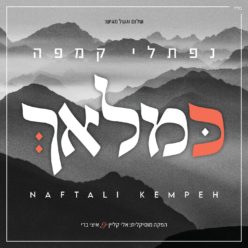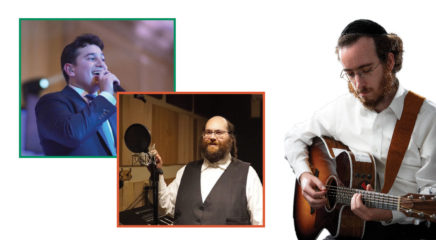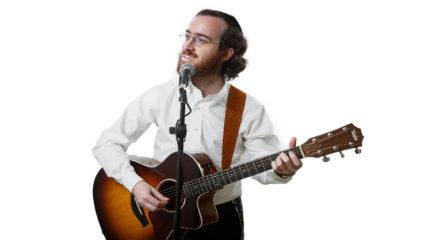"Those words seemed almost like a cry to me, and they inspired me to compose my own song with these words"
NAFTALI KEMPEH, the popular Israeli singer and songwriter with the gentle but penetrating kumzitz style that bochurim love, is releasing his third album in quick succession. Only three years after his debut Leyachada Shemo, which was followed by Ana Eilech in 2020, the new album, K’MALACH, contains 11 fresh songs in his distinctive, sincere, Carlebach-influenced style.
Kempeh says the new material is a reflection of his own maturity and experience in the industry: He feels his expertise as a composer is growing, and his compositions are gaining additional musical and melodic depth. Eli Klein and Yitzy Berry, old friends from yeshivah days and the producers of his first two albums, have again added their trademark professional and exciting touch to the arrangements.
“The best thing about working with Eli and Yitzy is that they enter the mindset of every artist they work with,” says Naftali. “They deal with my material just as expertly as they do when they provide arrangements for more contemporary, pop-style artists.”
The new single “CHOSHEIV AL YERUSHALAYIM” (“Thinking of Yerushalayim”) which Kempeh released with a music video ahead of his album, is one highlight.
“Shlomo Carlebach famously interluded his ‘Im Eshkacheich Yerushalayim’ with the haunting ‘If you would have asked a little Yiddele on the way to the gas chambers what are you thinking about, he would answer, “I’m thinking of Yerushalayim, I’m on my way to Yerushalayim.” If you’d stop a little Yiddele on his way to Siberia, what are you thinking about, he would answer, “I’m thinking about Yerushalayim, I’m on my way to Yerushalayim…”’ Those words seemed almost like a cry to me, and they inspired me to compose my own song with these words, a hymn full of our hopes and dreams for our return home.”
Another song filled with longing is the final track, “Manginah shel Beis Medrash,” Kempeh’s ode to bygone yeshivah days. The high part is the pasuk “Lulei sorascha sha’ashu’ai,” while the first, lower section, is his own composition, describing how even years after leaving the yeshivah hallways, a part of every yeshivah man longs for those days when he was able to just sit in the beis medrash, learning and davening undistracted.
“I feel very deeply connected to both these things,” Naftali says, expressing profound feelings for both Yerushalayim and the beis medrash. And his gift, perhaps, is sharing that connection through music, the language of the soul.
(Originally featured in Mishpacha, Issue 884)





